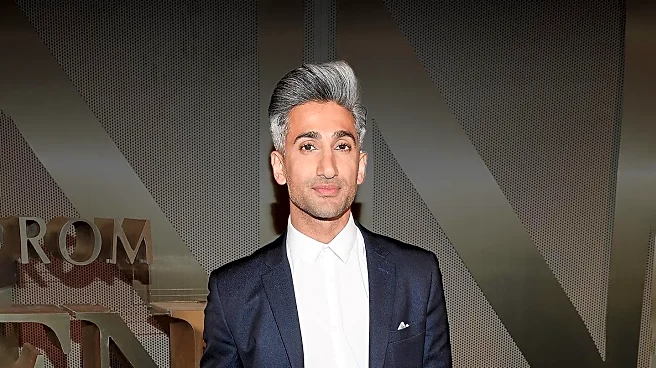What's Happening?
Eli Lilly has launched a new campaign, 'Changing the Thread Collection,' aimed at addressing bias and stigma associated with obesity. The initiative features Tan France, known for his role on the US makeover show Queer Eye, who will help elevate personal
narratives through clothing. The campaign seeks to redefine obesity as a chronic disease deserving of understanding and treatment, rather than a failure of willpower. An exhibition showcasing clothing embroidered with stories from individuals living with obesity will be held in New York City, aiming to spark conversation and cultural shifts in perceptions of obesity.
Why It's Important?
This campaign is significant as it addresses the societal stigma surrounding obesity, which can lead to discrimination and internalized bias affecting individuals' self-esteem and mental health. By reframing obesity as a chronic disease, Eli Lilly aims to foster a more compassionate understanding and encourage treatment. The involvement of a public figure like Tan France can amplify the campaign's reach and impact, potentially influencing public opinion and policy regarding obesity treatment and awareness. This initiative also highlights the intersection of health and lifestyle, promoting a holistic approach to managing obesity.
What's Next?
The exhibition in New York City will serve as a platform for sharing stories and fostering dialogue about obesity. It is expected to attract attention from media, healthcare professionals, and the public, potentially influencing future campaigns and policies. Eli Lilly's continued efforts to involve public figures in health campaigns may lead to more initiatives addressing other health issues. Stakeholders in healthcare and fashion industries might explore collaborations to further integrate health narratives into lifestyle and consumer products.
Beyond the Headlines
The campaign's focus on clothing as a medium for storytelling underscores the role of fashion in personal expression and societal perceptions. It challenges traditional views on obesity and encourages a shift towards empathy and understanding. This approach may inspire similar campaigns in other areas of health and wellness, promoting narratives that empower individuals and reduce stigma.

















